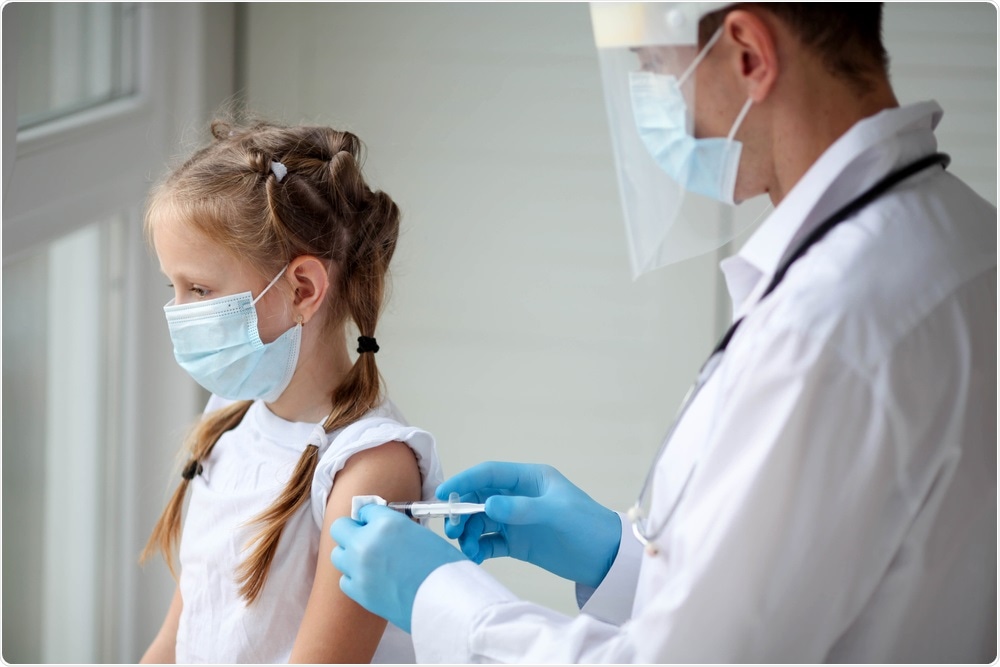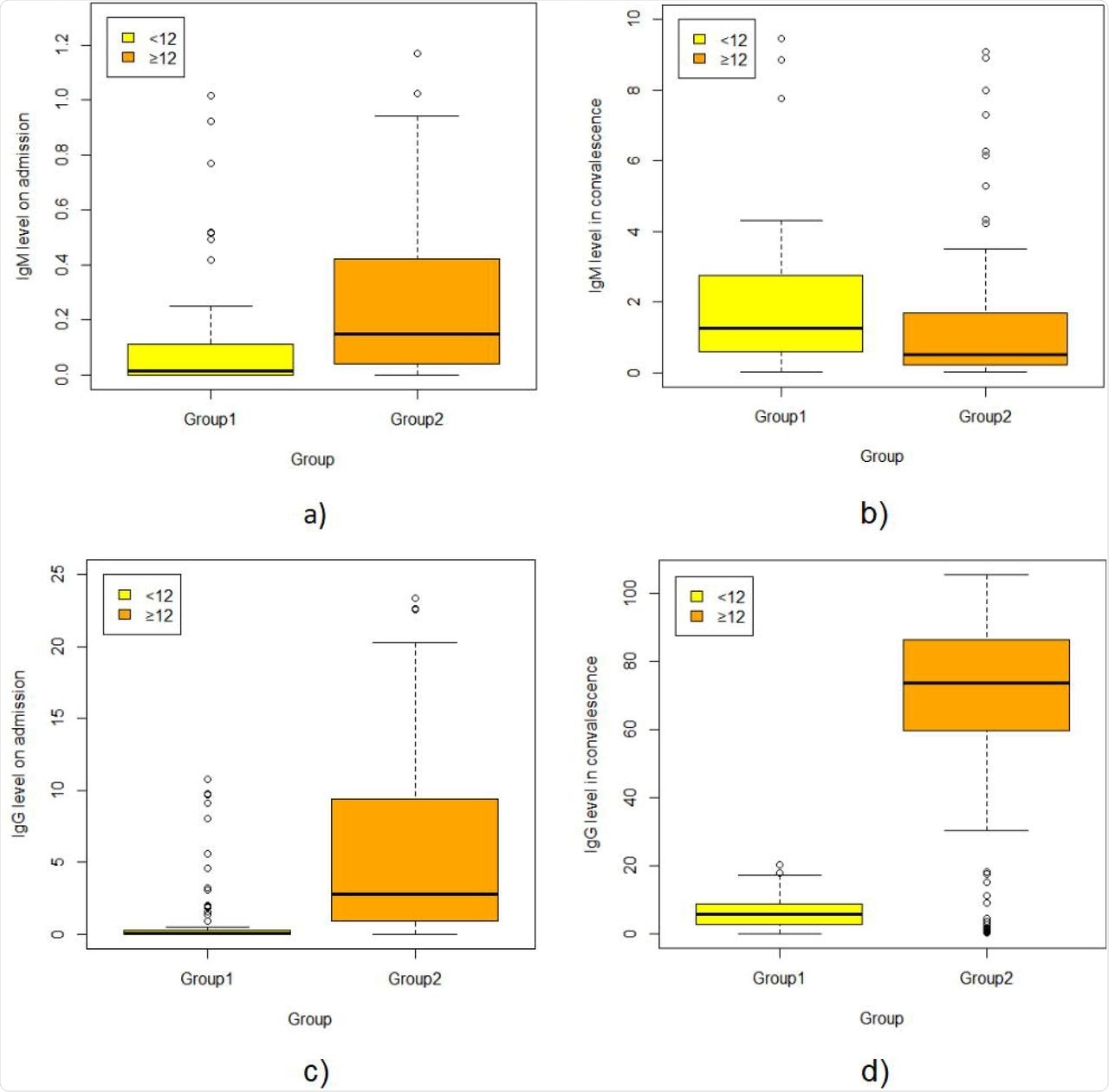This analysis found that young children may be critical hidden spreaders of the severe acute respiratory syndrome coronavirus 2 (SARS-CoV-2, the causative agent of COVID-19). Thus, the current study indicates that young children 12 years and younger are in urgent need of vaccination to mitigate the spread of SARS-CoV-2 spread caused by this particular population.
 Study: A need of COVID19 vaccination for children aged <12 years: Comparative evidence from the clinical characteristics in patients during a recent Delta surge (B.1.617.2). Image Credit: smile23 / Shutterstock.com
Study: A need of COVID19 vaccination for children aged <12 years: Comparative evidence from the clinical characteristics in patients during a recent Delta surge (B.1.617.2). Image Credit: smile23 / Shutterstock.com

 This news article was a review of a preliminary scientific report that had not undergone peer-review at the time of publication. Since its initial publication, the scientific report has now been peer reviewed and accepted for publication in a Scientific Journal. Links to the preliminary and peer-reviewed reports are available in the Sources section at the bottom of this article. View Sources
This news article was a review of a preliminary scientific report that had not undergone peer-review at the time of publication. Since its initial publication, the scientific report has now been peer reviewed and accepted for publication in a Scientific Journal. Links to the preliminary and peer-reviewed reports are available in the Sources section at the bottom of this article. View Sources
Background
The ongoing COVID-19 pandemic has caused over 250 million infections and over 5.1 million deaths globally. Several new mutants of SARS-CoV-2 include the Alpha, Beta, Gamma, Lambda, and Delta.
The Delta variant, which was first identified in Maharashtra, India in late 2020, has rapidly spread worldwide. In Guangzhou, China, the Delta variant was first reported on May 21, 2021.
COVID-19 vaccines have been effective against the Delta variant. To this end, these vaccines appear to provide protection and reduce the severity of symptoms and hospitalization rates in individuals who are vaccinated against COVID-19. Despite these observations, neutralizing antibodies produced from either vaccination or prior SARS-CoV-2 infection are less effective against the SARS-CoV-2 Delta variant as compared to their effectiveness against other SARS-CoV-2 variants.
Importantly, according to the United States Centers for Disease Control and Prevention (CDC), people who have not been vaccinated are 11 times more likely to get infected with COVID-19, thus indicating the important role of vaccines and the protection it renders from the Delta variant. The lack of mass vaccination globally for children and adolescents under the age of 12 years may cause this population to harbor the Delta variant, as well as additional SARS-CoV-2 mutant strains to further aggravate the epidemic.
With the weak vaccine-elicited by neutralizing antibodies against the SARS-CoV-2 Delta variant, there is an impending fear of severe breakthrough infections.
Study findings
The study cohort included a total of 226 individuals with positive SARS-CoV-2 Delta VOC, which was confirmed by SARS-CoV-2 polymerase chain reaction (PCR) assay. All study participants were admitted to the Affiliated Hospital of Putian University.
The researchers divided these individuals into two groups including those 12 years and younger who had not been vaccinated. This group consisted of 77 individuals with the median age of 9.
The second group included those above the age of 12, most of whom had been vaccinated with Chinese inactivated viral vaccine from Sinopharm or Sinovac. This group consisted of 149 individuals with the median age of 39.
The researchers measured cycle threshold (CT) values from the SARS-CoV-2 real-time PCR and serological results, which included blood test, biochemical analysis, C-reactive protein (CRP), interleukin-6 (IL-6), SARS-CoV-2 IgG antibody titer, blood coagulation function, and microbe testing. They also obtained the data on the clinical presentations and compared the observations.
The children presented mild symptoms, an activated innate immunity highlighted by higher lymphocyte counts, lower overall inflammatory responses, and a good prognosis. However, the nucleic acid CT value of the vaccinated group increased to a greater extent as compared to the unvaccinated individuals, thus indicating a faster virus clearance due to vaccination.
The researchers also assessed the nucleic acid negativization (NAN), which is defined as ‘the duration from the first day of the positive nucleic acid report to the time of the second negative nasopharyngeal swab testing of the two successive negative nucleic acid tests.’ To this end, the vaccinated patients over the age of 12 years had lower COVID-19 antibodies of immunoglobulin M (IgM) and IgG but longer NAN time as compared to those who were unvaccinated at 18 days versus 16 days, respectively. The NAN time is closely related to the elimination of the virus and its infectivity.
 Dots represent IgM/IgG level in children aged <12 years (group1) and those aged≥ 12years (group2). Box plots indicate the median and interquartile range (IQR) and the whiskers represent the maximum and minimum values. The results showed lower COVID antibody IgM and IgG level on admission, and IgG level in convalescence [0.13(0.00,0.09) vs. 0.12(0.03,0.41), p<0.05; 0.02(0.00,0.14) vs. 1.94(0.54,6.40), p <0.05; 5.46(2.41,9.26) vs. 73.63(54.63,86.55), p< 0.05, respectively], but higher antibody IgM level in convalescence [1.05(0.51,2.31) vs. 0.51(0.20,1.69), p=0.016].
Dots represent IgM/IgG level in children aged <12 years (group1) and those aged≥ 12years (group2). Box plots indicate the median and interquartile range (IQR) and the whiskers represent the maximum and minimum values. The results showed lower COVID antibody IgM and IgG level on admission, and IgG level in convalescence [0.13(0.00,0.09) vs. 0.12(0.03,0.41), p<0.05; 0.02(0.00,0.14) vs. 1.94(0.54,6.40), p <0.05; 5.46(2.41,9.26) vs. 73.63(54.63,86.55), p< 0.05, respectively], but higher antibody IgM level in convalescence [1.05(0.51,2.31) vs. 0.51(0.20,1.69), p=0.016].
Therefore, based on these observations, the researchers hypothesized that there is slow virus clearance in the unvaccinated younger group. This observation suggests that if children 12 years of age and younger remain vaccinated, they may carry the virus longer and become sources of viral transmission.
Conclusions
The current study reported increased NAN time in the young children and contrastingly, increased nucleic acid CT value and rapid and higher COVID-19 antibodies in the vaccinated population over the age of 12. Based on these results, the researchers suggest that unvaccinated children are critical hidden spreaders of the virus; thus, COVID-19 vaccination for children should be promoted in an orderly manner, monitoring closely for effectiveness and any adverse reactions.
While the Chinese government has recently approved the emergency use of the COVID-19 vaccine for children aged between 3-17 years, this study critically compares the clinical characteristics that support the need for vaccination among children.
The researchers called for further studies to determine the underlying mechanisms of immune function in children under 12 years old.

 This news article was a review of a preliminary scientific report that had not undergone peer-review at the time of publication. Since its initial publication, the scientific report has now been peer reviewed and accepted for publication in a Scientific Journal. Links to the preliminary and peer-reviewed reports are available in the Sources section at the bottom of this article. View Sources
This news article was a review of a preliminary scientific report that had not undergone peer-review at the time of publication. Since its initial publication, the scientific report has now been peer reviewed and accepted for publication in a Scientific Journal. Links to the preliminary and peer-reviewed reports are available in the Sources section at the bottom of this article. View Sources
Journal references:
- Preliminary scientific report.
Li, H., Lin, H., Chen, X., et al. (2021). A need of COVID19 vaccination for children aged <12 years: Comparative evidence from the clinical characteristics in patients during a recent Delta surge (B.1.617.2). medRxiv. doi:10.1101/2021.11.05.21265712. https://www.medrxiv.org/content/10.1101/2021.11.05.21265712v1.full-text.
- Peer reviewed and published scientific report.
Li, Hongru, Haibin Lin, Xiaoping Chen, Hang Li, Hong Li, Sheng Lin, Liping Huang, et al. 2022. “Unvaccinated Children Are an Important Link in the Transmission of SARS-CoV-2 Delta Variant (B1.617.2): Comparative Clinical Evidence from a Recent Community Surge.” Frontiers in Cellular and Infection Microbiology 12 (March). https://doi.org/10.3389/fcimb.2022.814782. https://www.frontiersin.org/articles/10.3389/fcimb.2022.814782.